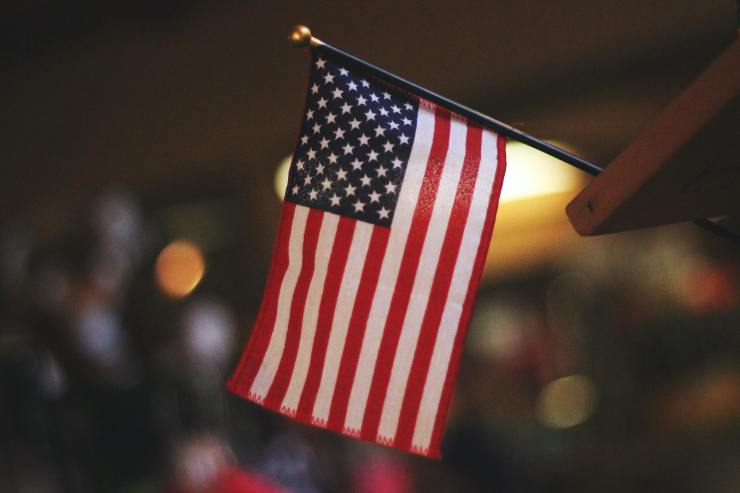
Barring any limiting event such as war or economic depression, if the pace at which Christians abandon their faith before the age of 30 accelerates beyond its current pace, America might no longer be a majority Christian nation by as early as 2045.
And Christians wouldn't just lose their majority status in America in this scenario. They would also be outnumbered by the religiously unaffiliated, also known as "nones," according to the findings of a new analysis by the Pew Research Center.
The findings are based on work from the Pew Research Center which projects religious composition in the United States under multiple switching scenarios for the first time, as part of the Pew-Templeton Global Religious Futures project. The project analyzes religious change and its impact on societies around the world.
In the study, Pew highlights four hypothetical scenarios out of several possibilities to demonstrate how the U.S. religious landscape might change over the next half century. The impact of younger Christian adults abandoning their faith without limitation was modeled in one of those scenarios.
While the other three scenarios reflect varying degrees of religious disaffiliation, "they all show Christians continuing to shrink as a share of the U.S. population, even under the counterfactual assumption that all switching came to a complete stop in 2020." The ranks of the unaffiliated, however, are projected to grow under all four scenarios.
"Of course, it is possible that events outside the study's model — such as war, economic depression, climate crisis, changing immigration patterns or religious innovations — could reverse current religious switching trends, leading to a revival of Christianity in the United States," the researchers noted. "But there are no current switching patterns in the U.S. that can be factored into the mathematical models to project such a result."
Data highlighted in the research show that while Christianity remains the "stickier" religious affiliation for older Americans, among younger adults it is the religiously unaffiliated identity that is enduring. If that trend is sped up with nothing to stop it, according to projections of the third of the four main models, the number of Christian adherents in the U.S. is likely to decline at a much faster rate.
"If the pace of switching before the age of 30 were to speed up throughout the projection period without any brakes, Christians would no longer be a majority by 2045," Pew researchers said.
In this model, the religiously unaffiliated would be America's most dominant faith expression by 2055, with about 46% of the population claiming that identify. Christians would represent just a 43% share of the population. By 2070, 52% of Americans would be unaffiliated, while only 35% would be Christian.
In 2020, the Pew Research Center estimated that about 64% of Americans, including children, were Christian. The religiously unaffiliated accounted for 30% of the U.S. population, while all other religions — including Jews, Muslims, Hindus and Buddhists — totaled about 6%.
While rising disaffiliation among younger adults "assumes there is a kind of ever-increasing momentum behind religious switching" among that cohort under 30, researchers suggested that trend isn't plausible as "highly religious parents tend to raise highly religious children who are less likely than children of less religious parents to disaffiliate in young adulthood."
"As a result, there may continue to be a self-perpetuating core of committed Christians who retain their religion and raise new generations of Christians," researchers said.
Of the four models presented, researchers selected the second which projects that rising disaffiliation from Christianity with limits could lead to "nones" becoming the largest religious identity in America by 2070 but not the majority identity.
The projected outcome for that model suggests that if the pace of disaffiliation before the age of 30 were to speed up initially but then hold steady, Christians would lose their majority status by 2050, when they would be 47% of the U.S. population compared to 42% for the unaffiliated. In 2070, "nones" would constitute a plurality of 48%, in this scenario while Christians would account for 39% of Americans.
Courtesy of The Christian Post.




